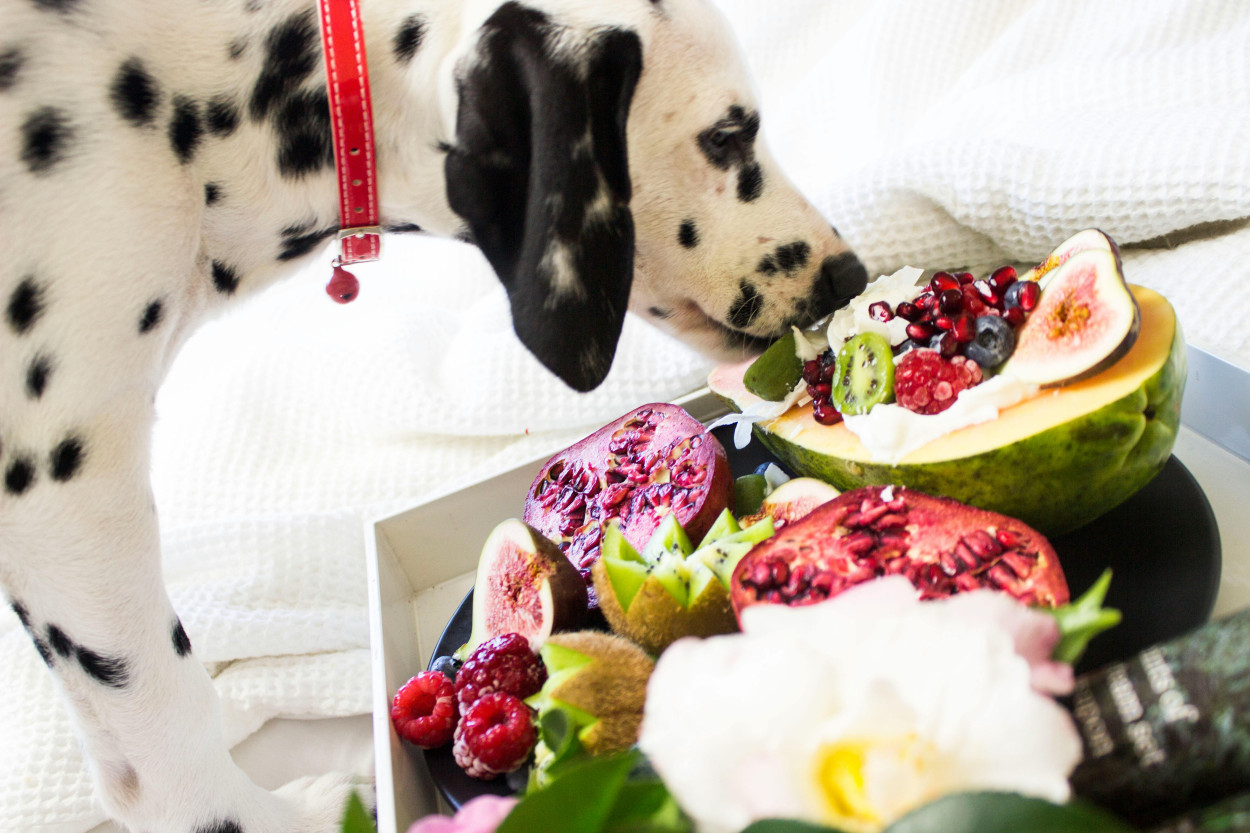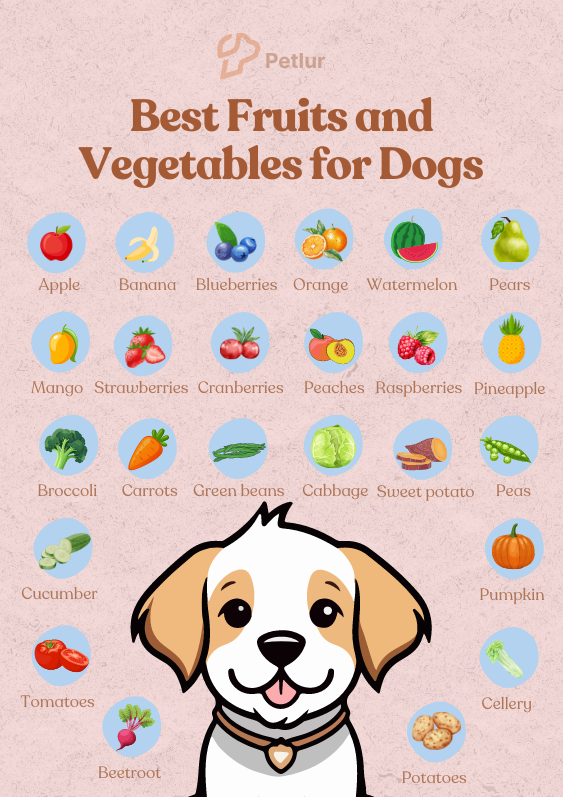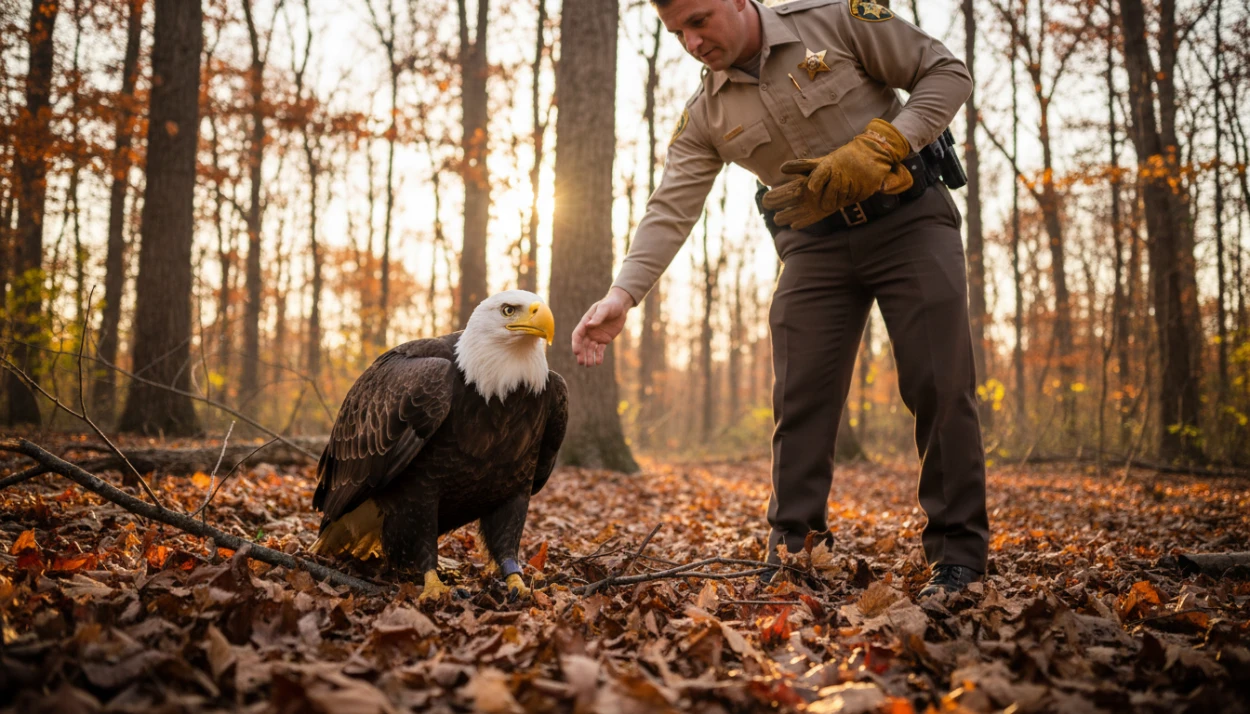A good and balanced diet is very important for the health and happiness of dogs. Fruits and vegetables can play an important role in the overall health of pets, but unfortunately there are some vegetables and fruits which can be harmful to the health of dogs.
Therefore, before adding vegetables and fruits to their diet, it is very important to know what is good and what is bad for your pet's health.

Why Fruits and Vegetables Are Beneficial for Dogs
Dogs are omnivores so they eat both vegetables and fruits. But Dogs digest food completely differently than humans.
If a dog eats the wrong food, it can be sick for a long time, in extreme cases, even death.
It is important to do research before adding certain nutrients or other ingredients to their diet.
If seen, dogs do not need vegetables and fruits in their diet, because there are many fresh dog foods on the market now and they offer a good source of vitamins, minerals and antioxidants. But if you give some (dog safe) fruits or veggies as a snack or treat it is OK.
You may be wondering why we should give our dogs vegetables and fruits. But once you read about the nutrients in vegetables and fruits, you won't ask that question again.
Healthy and Safe Fruits for Dogs
1. Apples
Yes, apples are a good addition to your dog’s diet. Apples are a great source of vitamins A, C, fibre and are low in protein and fat. Be sure to remove the seeds and core before giving, they are great treats for your dog's health.
2. Bananas
Yes, dogs can eat Bananas. Bananas are rich in potassium, vitamins, biotin, fibre, and copper. Hence, it is the perfect snack for your pooch, because of their natural sweetness.
3. Blueberries
Dogs can also eat blueberries, these barriers are not only delicious but also loaded with antioxidants, fibre, and vitamins C and K. That supports your dog's health and prevents cell damage in both dogs and humans.
4. Strawberries
Strawberries are another sweet treat that’s full of fibre, vitamin C, potassium and manganese that's really good for the immune system.
Strawberries contain enzymes that are good for teeth whitening in dogs. Eating frozen strawberries can be fun for dogs.
5. Melon
Yes, dogs can also eat melons. Watermelon, cantaloupe and honeydew are excellent sources of nutrients, Melons are extremely refreshing and full of water and fibre. This is why it is the best treat for dogs.
Like other fruits, melons are high in sugar therefore, it should be given in limited quantities.
6. Cranberries
Yes, cranberries are safe for dogs. Both cranberries and dried cranberries are good treats for dogs in small amounts. This fruit is full of antioxidants that offer many health benefits.
7. Mango
Mangoes are super safe food for most dogs. Like other fruits, mangoes are an excellent source of four different vitamins: A, B6, C, and E. And it contains potassium, both alpha-carotene and beta-carotene.
You can give small amounts of this mango treat to your dog.
8. Oranges
Oranges are rich in vitamin C, potassium, and fibre. According to veterinarians, oranges are good for the health of dogs. The juicy flesh of the orange makes it a tasty treat for dogs.
But veterinarians recommend only the flesh, rough orange peel can be harmful to dogs' noses and digestive systems.
9. Peaches
Yes, dogs can eat peaches. Peaches is also a popular summer fruit full of nutrients like vitamins A and C, antioxidants.
You gave your dog a small amount of peaches because they are higher in fibre or sugar than other fruits.
10. Pineapple
Yes, dogs can eat pineapples. A small amount of pineapples is an excellent sweet treat for dogs.
Canned pineapple should not be added to dog food. Because cane syrup contains a lot of sugar which is not suitable for the health of dogs.
This fruit contains vitamins, minerals, fibre, enzymes and bromelain. Enzymes and bromelain are good for easy absorption of protein in dogs' bodies.
11. Raspberries
Raspberries are safe for dogs in limited quantities. These berries are low in sugar and calories but high in fibre, vitamin C and manganese.
Berries are also antioxidants that are good for dogs. Raspberries are an anti-inflammatory fruit and have anti-ageing properties, so they are good for elderly dogs' joints.
12. Pears
Pears are rich in vitamins C and K, copper and fibre, making them a great treat for dogs due to their nutritional value.
If you want to give pears to your dog, make sure to cut the flesh of the pear into small pieces and remove the pits and seeds. Pear seeds contain traces of cyanide, which is harmful and also damages the stomach.

Healthy and Safe Vegetables for Dog
1. Sweet potato
Sweet potato is a root veg and also rich in fibre, vitamin A,C and B6, potassium, calcium and iron. It helps the digestive and immune system to function properly. You can add boiled or steamed potatoes to your dog's diet in small amounts.
2. Green beans
Yes, dogs can eat beans. Green beans are low in calories and packed with minerals, vitamins and fibre.
Make sure you give your dog all kinds of cooked green beans – chopped, steamed or canned rather than raw. Cooked beans are more digestible than uncooked.
3. Carrots
Carrots are also a root vegetable and dogs can eat them. Carrots contain low calories but are rich in fibre and beta-carotene, which makes vitamin A.
Carrots are a great snack for dogs and are also great for dog teeth.
4. Cabbage
Cabbage is a very tasty and healthy treat for dogs. It comes in many varieties and all of them are beneficial for the health of dogs. Cabbage has vitamin C and vitamin K that are good for the digestive system and skin.
5. Broccoli
Dogs can eat broccoli. Broccoli is low in fat, rich in vitamins and fibre. But make sure you can give your dog an occasional treat and preferably steamed or boiled broccoli instead of raw.
6. Cucumber
Dogs can enjoy eating cucumbers. If you want to hydrate your dog in summer, you must give them cucumbers. Cucumbers are high in water content and a dog-friendly vegetable.
It contains vitamins K, C, and B1, as well as potassium, copper, magnesium, and biotin.
7. Pumpkin
Yes, pumpkin is a safe veg for dogs. You can give pumpkin or canned pumpkin puree to your dog. This Halloween vegetable is rich in vitamins, minerals, fibre and antioxidants.
It prevents both diarrhoea and constipation in dogs. Keep in mind that you can give small amounts of lightly cooked puree to your dog.
8. Peas
Yes, dogs can eat peas. It comes in many varieties such as green peas, snow peas, sugar snap peas, and garden or English peas. All are rich in vitamins, minerals, protein and fibre.
Peas are good for dogs' health. You can feed your dogs frozen peas in small quantities but avoid canned peas as canned peas contain sodium.
9. Tomatoes
The ripened flesh of a tomato is safe for dogs, but the green part of the tomato plant is harmful to dogs and contains toxins. It is better to avoid tomatoes because it is more dangerous for your dog if the dog eats tomatoes in excess.
10. Celery
Yes,dogs can eat celery. Celery contains many nutrients like vitamins A, B and C that are heart healthy and fight cancer. Cut celery into bite-sized pieces and give in limited amounts.
11. Beetroot
Yes dogs can eat beetroots. This root vegetable is an excellent source of vitamin C, fibre, folate, manganese and potassium, all of which are nutrients good for dogs' health. These nutrients are good for dogs' skin, coat, digestive system and immune system.
12. Potatoes
Potatoes are a safe vegetable for dogs. Potatoes contain vitamin C, antioxidants and potassium that are good for dogs. If you want to give potatoes to your dog, offer them boiled or baked potatoes without spices and oil and avoid raw potatoes.
Note:
Fruits and vegetables are an excellent source of all nutrients, but you should give your pet snacks or treats in moderation. It is best to consult your vet first about dog food/treat
Toxic Fruits and Vegetables for Dogs
1. Avocado
Dogs can't eat avocados. Avocado is a healthy fruit for humans but not a healthy fruit for dogs.
This is because the leaves, pits, and skin of avocados contain a toxin (persin) that causes vomiting and diarrhoea in dogs, and the flesh also causes gastrointestinal problems in dogs.
2. Cherries
Cherries are not a safe fruit for dogs. The pit, pulp, and stem of cherries contain a cyanide toxin that is harmful to dogs. If you have a cherry tree nearby, you should keep an eye on your dog to make sure it doesn't eat it.
But if you remove the pit, leaves and stem of the cherry, the flesh will not harm your dog.
3. Grapes
Grapes are the most dangerous fruit for dogs. There are many varieties of grapes, raisins, sultanas and currants but unfortunately all are poisonous to dogs. And grapes of all kinds, raw, ripe, dried, seedless, flesh, leaves, and stems are also most poisonous to dogs even when eaten in small quantities.
Never take this dangerous fruit around your dog, because if a dog eats a small amount of grapes, it causes kidney failure.
4. Asparagus
Asparagus is a safe vegetable for dogs, but dogs cannot eat it. Because it is very difficult for dogs to eat in raw form. But if you boil these vegetables, they lose all the nutrients, so dogs can't benefit.
It is better to substitute another vegetable or fruit.
5. Wild Mushrooms
Wild mushrooms are poisonous to dogs. If you see your dog eating wild mushrooms anywhere, get to the vet immediately. Because it causes kidney or liver failure and there is a possibility of coma or death.
6. Onions
Onion is a safe vegetable for humans but it is not safe for dogs and other pets especially cats.
Onions are part of the Allium plant family, which includes garlic, chives, shallots and leeks, all of which are poisonous to dogs. Onion flesh, leaves, peel, juice and cooked or processed powder are all poisonous.
7. Tinned Fruit and Veg
It's important to do proper research before adding any food or treat to your pet's bowl, and if you use canned or packaged food, it's a good idea to read the ingredients before eating.
Canned fruits or vegetables contain many nutrients but a sugar or salt syrup is added for preservation, which contains some chemicals such as sodium, Which is not good for dogs' health. Avoid canned or tinned fruit and always give fresh (dog-safe) fruit or vegetables.
How to Prepare Fruits and Vegetables for Dogs
Washing:
If possible, choose fresh fruits and vegetables for pets. There are many chemicals and pesticides on the surface of fruits and vegetables.
It is very important to clean the chemicals before eating. So always wash fruits and veggies before eating them.
Peeling and Cutting:
First you need to peel fruits and veggies after washing, peeling helps remove excess chemicals and makes them easier to digest.
Always make sure to cut into bite-sized pieces that are easier for dogs and other pets to chew and digest.
Cooking:
Some vegetables cannot be eaten uncooked by dogs. Boiling or steaming without any oil or spices is essential, this method is healthy and digestible for dogs.
Recipes:
You should make some dog-friendly recipes and include fruits and vegetables, you make simple fruit treats, veggie biscuits, frozen snacks, etc.
Incorporating Fruits and Vegetables into Your Dog’s Diet
If you want to give your dog fruits or vegetables, give them in small amounts.
You should mix it with a regular food or treat to test for likes or dislikes or any allergies, you should give them in a few days of week not on a regular basis.
Fruits and vegetables are a good source of vitamins, minerals and other nutrients, but not everything for everyone.
Monitor your dog for any signs of allergies, such as itching, swelling, or gastrointestinal issues.
Conclusion
Incorporating fruits and vegetables into your dog’s diet can offer numerous health benefits, from improved digestion to a shinier coat.
Always introduce new foods slowly and watch for any adverse reactions. With a bit of care and creativity, you can add variety and nutrition to your dog’s meals in a fun and safe way.
Frequently Asked Questions
1. Can all dogs eat fruits and vegetables?
Most dogs can enjoy a variety of fruits and vegetables, but it’s important to introduce them slowly and watch for any adverse reactions. Some dogs may have allergies or sensitivities.
2. How much fruit and vegetables should I feed my dog?
Fruits and vegetables should make up no more than 10% of your dog’s diet. Small portions a few times a week are generally sufficient.
3. Are there any fruits and vegetables that are toxic to dogs?
Yes, some fruits and vegetables like grapes, raisins, onions, garlic, and avocados are toxic to dogs and should be avoided.
4. Can fruits and vegetables replace my dog’s regular food?
No, fruits and vegetables should be used as supplements or treats, not as a replacement for balanced dog food.
5. What should I do if my dog has a bad reaction to a fruit or vegetable?
If your dog shows signs of an allergic reaction or digestive distress, stop feeding them the new food and consult your veterinarian immediately.









